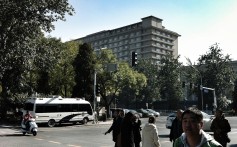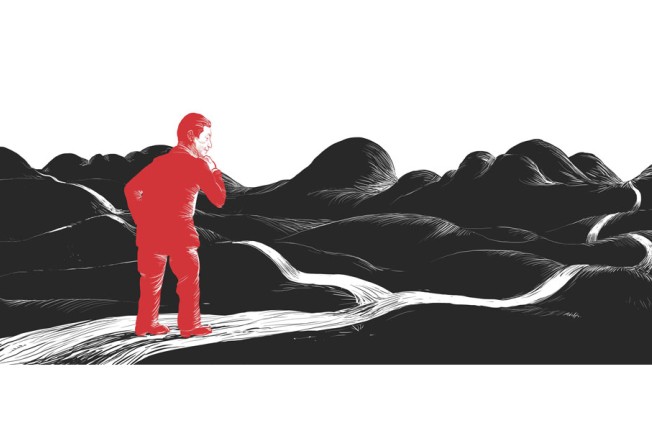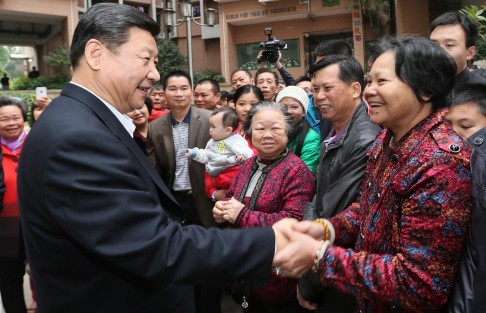
Key Party meeting to forge China's future, but don't expect major political reforms
The third plenum will reveal the nation's direction under Xi Jinping, but will political reforms be part of the agenda?

As the Communist Party's Central Committee leaders gather in Beijing on Saturday for a closely-watched session, an expectant public - hungry for change - eagerly awaits proposals that might shake up the way the People's Republic governs itself.

But there have been signs that party politics may be on the table. In late October Yu Zhengsheng , the party's fourth-ranked leader, hailed the reform measures to be discussed as being "unprecedented". A subsequent Politburo meeting vowed to accelerate developments in five areas, including democratic politics, in a comprehensive and deepening way.
"The meeting will mainly focus on economic reforms. But the tone of comprehensive reform hints that the leadership is leaving some leeway for possible political reforms," says Cheng Li, director of research at the John Thornton China Centre at the Brookings Institution in Washington. But don't hold your breath awaiting momentous change: what Chinese leaders consider to be "political reform" is often very different from how it is defined in the West.
Political reform on the mainland is not about universal suffrage or balancing power among the administrative, legislative and judiciary branches, but about making the government more responsive, efficient - and powerful.
There is a yawning gap between what defines the word "reform" and what it means in practice. Ask a state think-tank scholar, an independent intellectual and an international researcher and you'll hear different answers.
International researchers insist there are standards that constitute positive political change. "Chinese political reforms are closely connected with economic reforms," says Cheng. "The current measures on anti-corruption are to some extent linked to political reforms. However, international researchers normally use free elections, rule of law and free expression of media as key barometers for democratic systems. China's political reforms are still a bit distant from using this standard."
Whatever is meant, there is agreement that China's government needs to change for the country to continue its economic success. "Without political reforms, what we achieved in the past three decades would be lost," said Zhu Lijia , a professor with the Chinese Academy of Governance.
Political change has long been a sensitive topic in China. Before the 18th Party Congress last November, the media highlighted the hopes of Chinese citizens who were hopeful that the new leadership would kick-start the stagnant government.

Last December, party head Xi Jinping , chose Shenzhen for his first out-of-town excursion, a move interpreted by China observers as a signal of his commitment to the reformist path of the late Deng Xiaoping . Xi called for "greater political courage and wisdom to deepen reforms", in a politburo meeting after the Shenzhen trip. The statement fanned the public's expectation that something big was afoot.
But the hopes withered. Months after, Xi began a Mao-like campaign, tightening control of the internet and media expression - which is why liberal academics warn about prospects for a regime that eschews political change.
"China faces two possible futures: one is to keep reforming to improve and perfect the market economy and limit the administrative powers, and this will lead to a market economy based on a rule of law," wrote Wu Jinglian, a renowned economist, in an article published on iceo.com.cn in September. "The other is to keep strengthening the government's role and the country will march towards a dead end of crony capitalism.
"In the coming 10 years, China should actively and prudentially push forward political reforms, while accomplishing its market economy reforms. This should become the theme of China's future reforms and it affects the rise or fall of the Chinese nation and the fundamental interests of every citizen," Wu writes.
Suddenly, the topic of political change is re-emerging after months of silence. A recent news analysis published by Xinhua said that a political change would be an important accomplishment at the upcoming meeting, and that revamping government functions would be a breakthrough that could lead to broader political reforms.
But what those changes and shifts may look like depends on which expert is talking.
"In my view, the government's anti-corruption efforts, transformation of the government functions and the restructuring of the government organisations fall into the category of political reforms," says Zhu.
Li Chengyan , a professor from Peking University's School of Government, says: "It's unrealistic to expect the new leadership to deliver major political reforms after just one year at the helm. Possible political reforms might include those in the judicial areas to fight corruption." Democracy within the party will be improved gradually, he predicts.
Some independent researchers believe that state media tries to salve the public's eagerness for political changes, even though there's no sign of them happening. "They intentionally confuse administrative reforms with political reforms," says Zhang Lifan , an independent political affairs commentator in Beijing. "Real political reforms should include independent … media … direct and general elections and full protection of citizens' rights as stated in the constitution, including media freedom and free expression."
Both Li and Zhu rule out any possibility of the Communist Party abandoning its one-party ruling system.
"The party will increase democracy within the party and use inner-party democracy to push forward the social democracy. Media freedom is not on the agenda yet," says Li.
When it comes to revising the system, Chinese leaders take a pragmatic approach.
"Their focus is to solve the immediate problems, with economic issues topping the agenda,'' Cheng of Brookings says. "However, the market opening will eventually force changes in political systems. They might come back [to reforms] sometime in the future."
Zhang agrees. "All the reform measures we have seen for now are aiming to improve the government's efficiency and strengthen the party's ruling. So it will be in the future," he says.
This is, after all, China.
"You can't expect China would become a democratic system like Taiwan or South Korea," says Geoff Raby, an independent China observer and former Australian Ambassador to China. "The possible scenario is to become a system like Singapore."